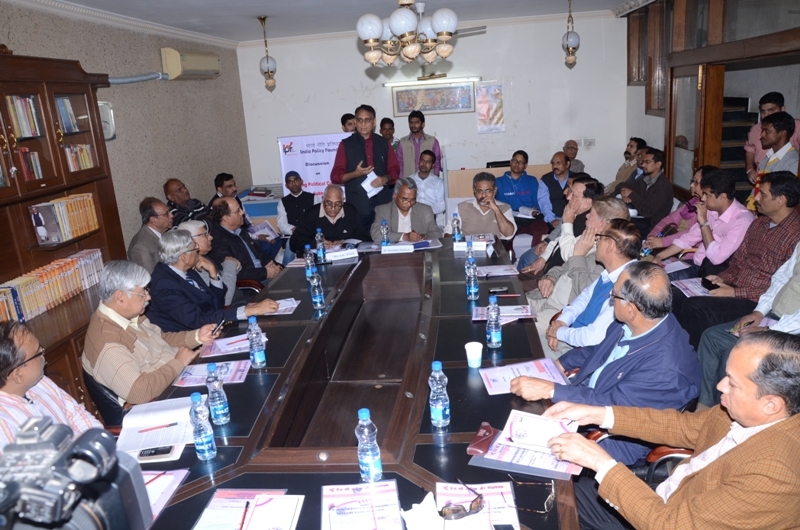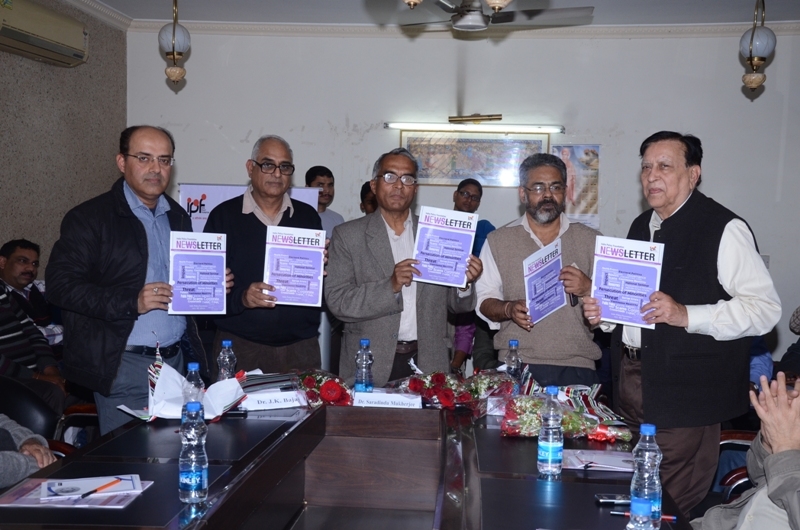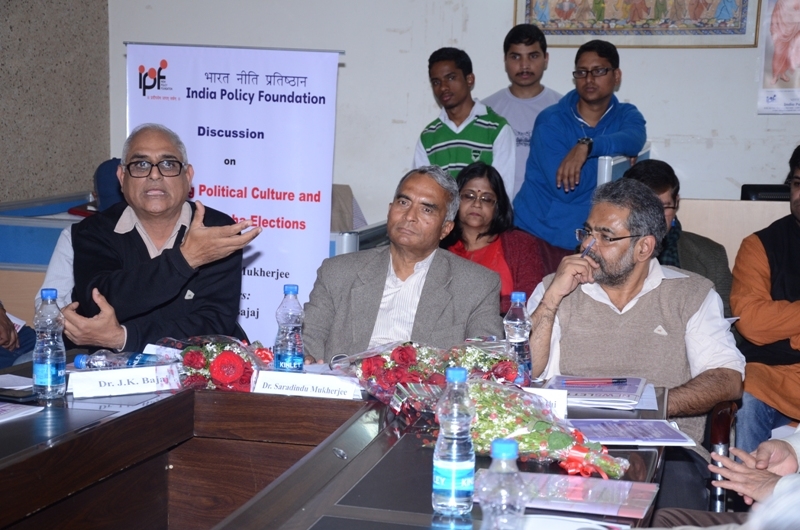Emerging Political Culture and 2014 Lok Sabha Elections
Total Views |
Chair: Dr. Saradindu Mukherji, Renowned Historian
Speakers: Dr. J.K. Bajaj, Director, Centre for Policy Studies, Prof. Avanijesh Awasthi, University of Delhi
February 27, 2014, IPF Seminar Hall, New Delhi
Political discourse marked a significant change during the Lok Sabha elections 2014. It was a political battle not between political parties but also between two ideas, two national philosophies and two legacies of the Indian politics since independence. This was the theme discussed in the seminar before the general elections 2014.

2014 Lok Sabha elections marked a new beginning in Indian Politics in more than one way. The mandate ended the compulsions of coalition politics at the centre and gave the signal for a strong Centre. A decade of experience in the field of internal security, communal overtones of the ruling party and its allies and the growing resentments of people all led the people to give a clear mandate in favor of Bharatiya Janta Party. Bharatiya Jana Sangh (BJS) was the predecessor of BJP, which began its journey in 1952 general elections and secured 3.06 per cent votes and 3 seats in Lok Sabha. The party stood for an alternative ideology and political culture. The mandate of 2014 general elections endorsed this thought process and leadership. In this context the present debate was initiated.

Prof. Rakesh Sinha, while introducing the topic emphasized that there is a greater participation of people in politics and it has become central discussion point among citizens of this country. It seems that the country is using it as a lab for evaluating itself.

Prof. Saradindu Mukherjee observed that people are fed-up with corruption and dynasty politics. He emphasized that politics of illusion and misleading people have become part of political culture. He said that political culture shapes the nature of power in any country.
Dr. Avanijesh Awasthi said that both the black and shining aspects are available in the Indian political culture. He recalled the Nehruvian era and discussed from Nehru–Menon to the present time. He said that people of this country are not dishonest. He stressed that in history and politics there is always action and reaction and said that those who deny the possibility of change are in great danger. Hoping that people of this country will bring change for a better future and a positive political culture will be created through greater participation of people.
Dr. J.K. Bajaj talked about possibility of getting out of the stagnation which has been created by dynastic politics. He emphasized on improving the economic conditions of the people. While talking about the emerging political culture, he said that politics of common man, lower middle class and middle class is the future of the nation. He emphasized that taking care of common man and treating them as equal and with same dignity will play important role in emerging political culture in the country.
The thought provoking address by the speakers and the chair encouraged the participants to take part in discussion at the end. Shri Alok Kumar intervened and provided useful insights into the discussion. Kumar emphasized that the people are angry for the kind of development happening- economically and politically- which needs to be understood by the politicians. He said that two parallel streams are following; one anger and frustration of people and the other is hope and aspiration for development in the society.